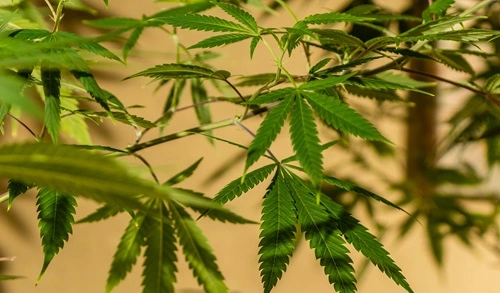No, weed (commonly referred to as cannabis) is not entirely legal in India. Its legality depends on the specific part of the plant being used and the purpose of use. Under the Narcotic Drugs and Psychotropic Substances (NDPS) Act, 1985, the production, sale, and consumption of certain parts of the cannabis plant, such as the flowering tops (ganja) and resin (charas), are prohibited. However, the use of cannabis leaves and seeds, particularly for bhang, is allowed under certain state regulations.
Legal Framework Governing Weed in India

Weed is regulated under the NDPS Act, 1985, which defines and categorizes cannabis and its derivatives.
1. Definitions Under the NDPS Act
The NDPS Act distinguishes between different parts of the cannabis plant:
- Charas:
- Refers to the resin extracted from the cannabis plant, commonly known as hashish.
- Status: Illegal for production, sale, and use.
- Ganja:
- Refers to the flowering or fruiting tops of the cannabis plant, excluding the seeds and leaves.
- Status: Illegal for production, sale, and use.
- Bhang:
- Derived from the leaves and seeds of the cannabis plant.
- Status: Legal under certain state regulations, often consumed during festivals like Holi.
- Cannabis Plant:
- Cultivation of the cannabis plant is prohibited unless authorized for industrial or medicinal purposes.
2. Permissible Uses of Cannabis
- Medicinal Use:
- Cannabis is permitted for medicinal purposes with government authorization. Research institutions and pharmaceutical companies are exploring its therapeutic potential.
- Industrial Use:
- Certain states, like Uttarakhand and Himachal Pradesh, allow the cultivation of industrial hemp (a variant of the cannabis plant) for manufacturing textiles, paper, and other products.
- Cultural Use:
- Bhang, made from cannabis leaves, holds cultural and religious significance in India and is legally consumed in many states.
3. Penalties for Violations
The NDPS Act prescribes severe penalties for the unauthorized production, possession, or sale of weed:
- Small Quantities:
- Possession of a small quantity (e.g., 1 kg of ganja or 100 grams of charas):
- Punishable with imprisonment up to 1 year and/or a fine of ₹10,000.
- Possession of a small quantity (e.g., 1 kg of ganja or 100 grams of charas):
- Commercial Quantities:
- Possession of a commercial quantity (e.g., 20 kg of ganja or 1 kg of charas):
- Punishable with rigorous imprisonment of 10-20 years and a fine of up to ₹2 lakh.
- Possession of a commercial quantity (e.g., 20 kg of ganja or 1 kg of charas):
- Intermediate Quantities:
- Possession of quantities between small and commercial levels results in penalties proportionate to the amount.
State Regulations
- Legal Status of Bhang:
- States like Uttar Pradesh, Rajasthan, and Madhya Pradesh regulate and permit the sale of bhang through licensed vendors.
- Bhang is widely used during festivals and for traditional Ayurvedic purposes.
- Industrial Hemp Cultivation:
- Uttarakhand became the first state to legalize hemp cultivation for industrial purposes, followed by Himachal Pradesh and parts of Madhya Pradesh.
Challenges and Concerns
- Illegal Trade and Abuse:
- Despite the ban, illegal cultivation and trade of weed continue, posing challenges for law enforcement.
- Health Risks:
- Unregulated use of weed can lead to health issues, including addiction and mental health disorders.
- Ambiguity in Laws:
- The distinction between legal (bhang) and illegal (ganja, charas) cannabis products often creates confusion.
Recent Developments
- Medicinal Cannabis:
- India is witnessing growing interest in the medicinal properties of cannabis. Several startups and research institutions are developing cannabis-based treatments.
- Debates on Legalization:
- Activists and experts have called for the decriminalization or legalization of weed, citing potential economic and medical benefits.
- Global Influence:
- The global shift towards cannabis legalization in countries like Canada, the US, and Uruguay has sparked discussions in India about revisiting its policies.
International Perspective
- Countries Where Cannabis is Legal:
- Recreational cannabis is fully legal in countries like Canada and Uruguay, and several US states.
- Many countries have legalized cannabis for medicinal purposes.
- Impact on India:
- India’s conservative approach to cannabis regulation contrasts with global trends, but international developments have influenced ongoing debates.
Conclusion
Weed is largely illegal in India under the NDPS Act, 1985, with exceptions for specific uses like bhang and medicinal or industrial purposes. While the law aims to prevent misuse and exploitation, it also creates opportunities for regulated use in medicine and industry. The debate on legalizing weed continues, with advocates highlighting its cultural significance, economic potential, and therapeutic benefits. For now, individuals must adhere to the existing laws to avoid severe penalties.
Hina Abbasi is Editor and a passionate sports and entertainment content writer at WinnersMaze.com. Hina’s expertise spans across a wide range of sports, and interest in many TV shows allowing her to deliver insightful analysis and compelling stories that resonate with readers.

